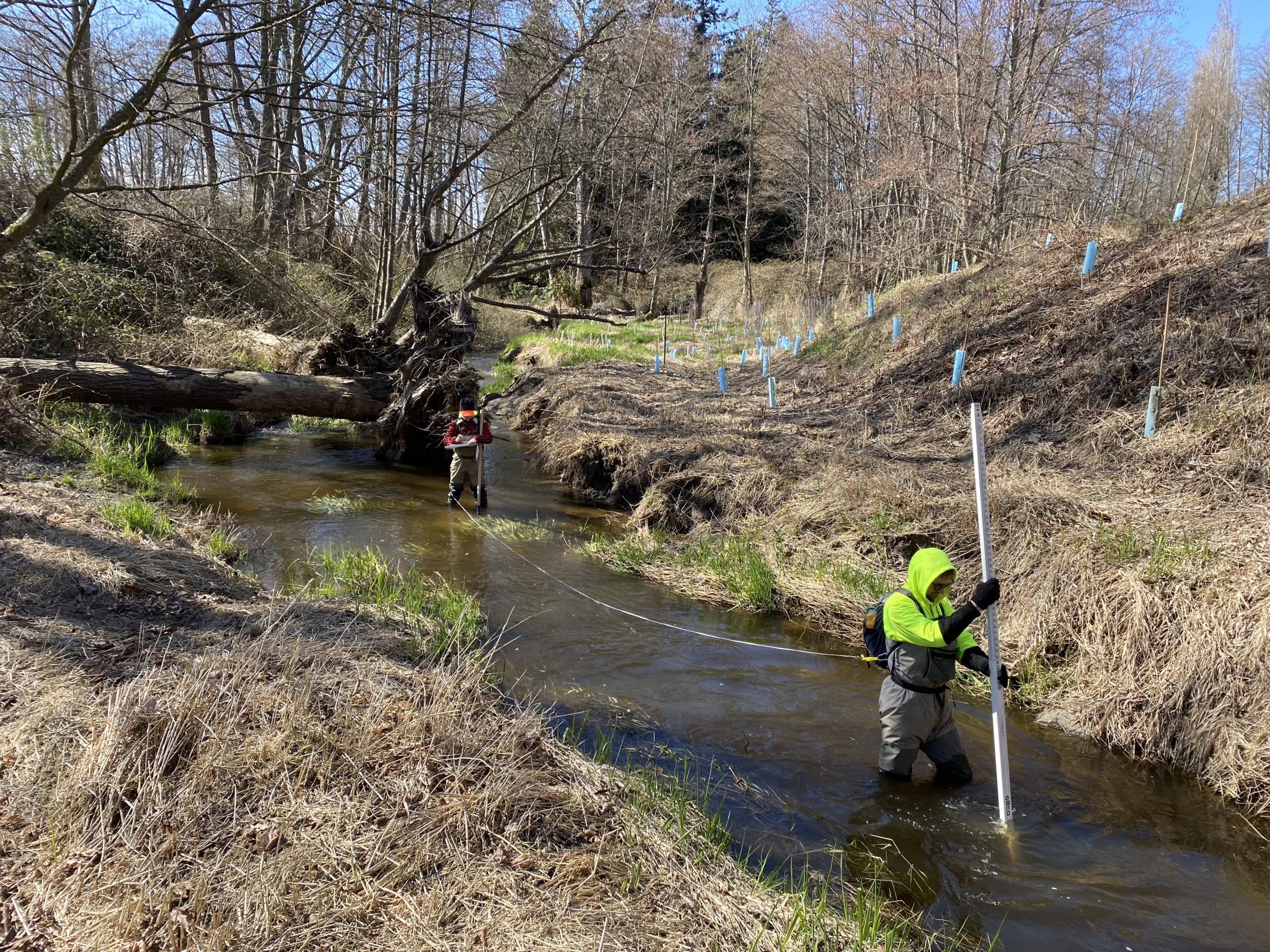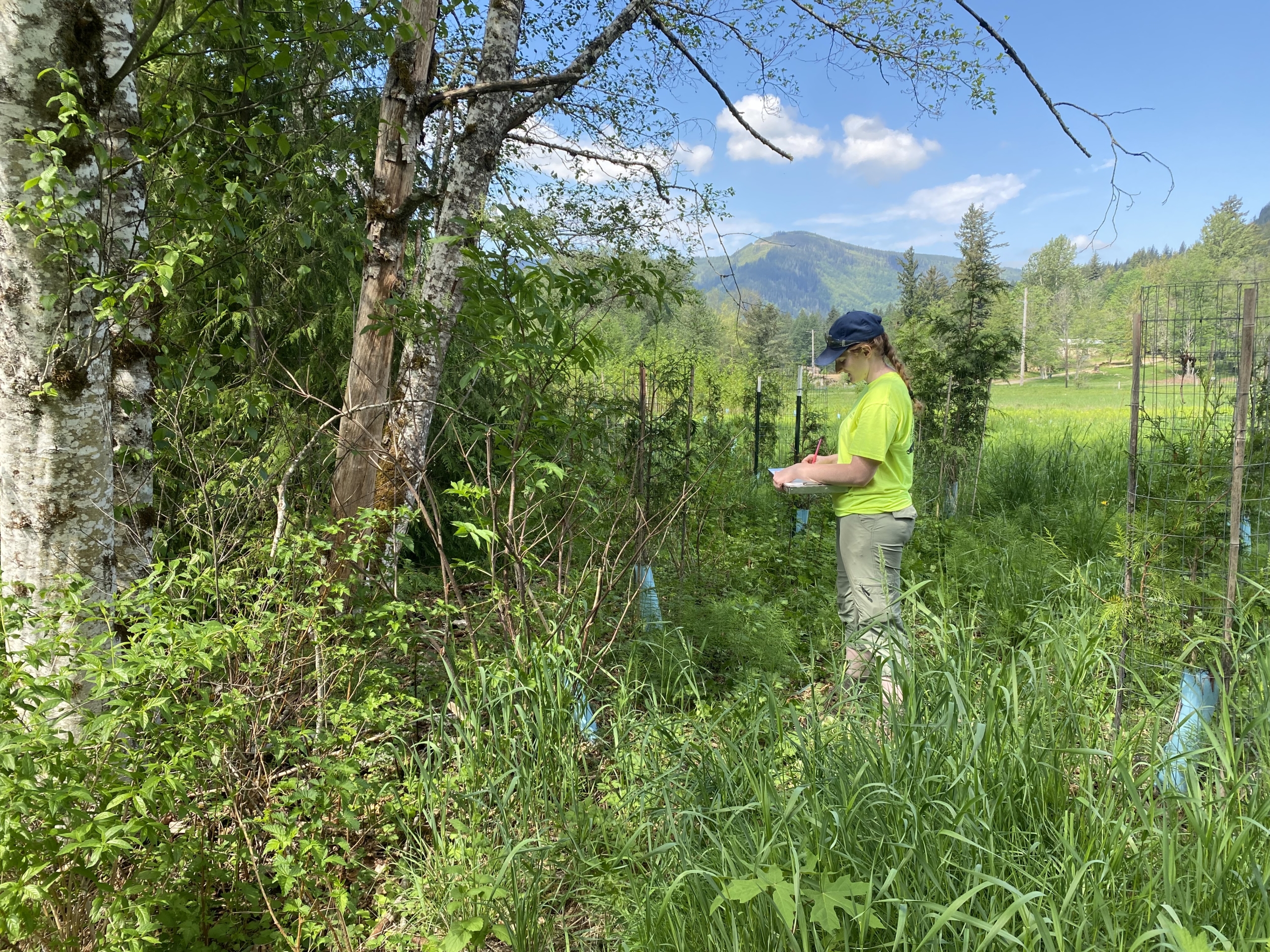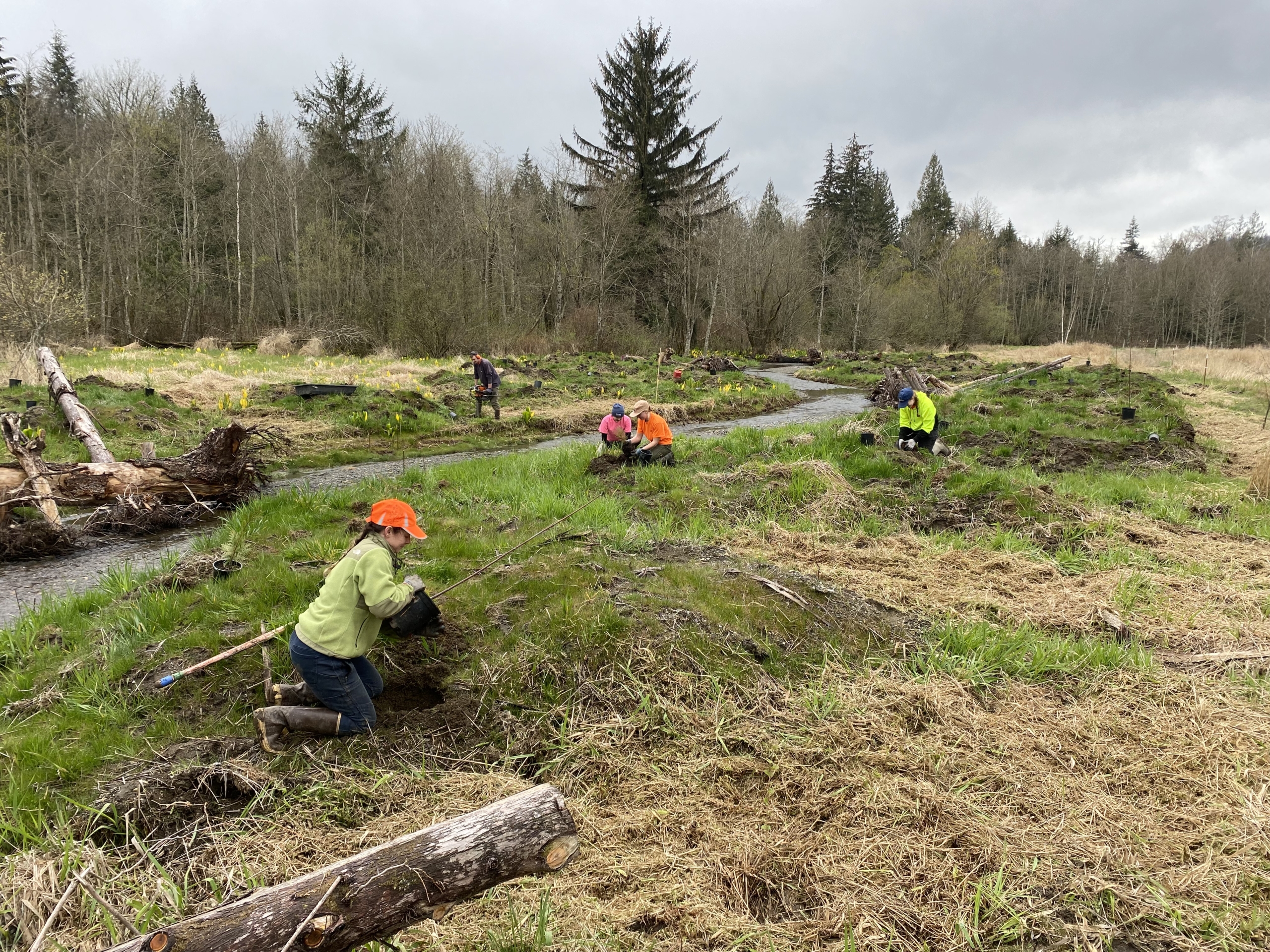Environmental Stewardship
Nooksack Salmon Enhancement Association
Whatcom PUD supports salmon habitat restoration
For almost 14 years, Whatcom PUD has supported the Nooksack Salmon Enhancement Association (NSEA) with funding to support NSEA’s salmon habitat restoration efforts. NSEA crews work on ground habitat restoration projects throughout Whatcom County including riparian revegetation, live stock exclusion, fish passage barrier removal, large, woody debris placement, habitat assessment and monitoring, and school education programs.
The Nooksack Salmon Enhancement Association first contacted the PUD in 2010 for salmon habitat restoration support. Projects for 2024 include fish passage projects, channel modification, blackberry and weed control and plantings to create more shade for salmon habitat.
Project Goals include:
• Educate land owners about salmon and their habitat needs;
• Present opportunities for improving salmon habitat on their property;
• Implement salmon habitat restoration projects appropriate for their property and their needs; and
• Whenever possible, directly involve land owners in/on the ground salmon habitat restoration.
The PUD is a proud recipient of NSEA’s 2013 Supporter of the Year.
NSEA is a community–based nonprofit organization dedicated to restoring sustainable wild salmon runs in Whatcom County. Organized in 1990 as one of 14 Washington State Regional Fisheries Enhancement Groups, it is a coalition of community members and partners who work together for restoration of wild salmon runs in Whatcom County from the Canadian border to the Skagit Watershed.

Terrell Creek Habitat Restoration

High Creek Monitoring

Breckenridge Creek Planting
Photos courtesy of NSEA
